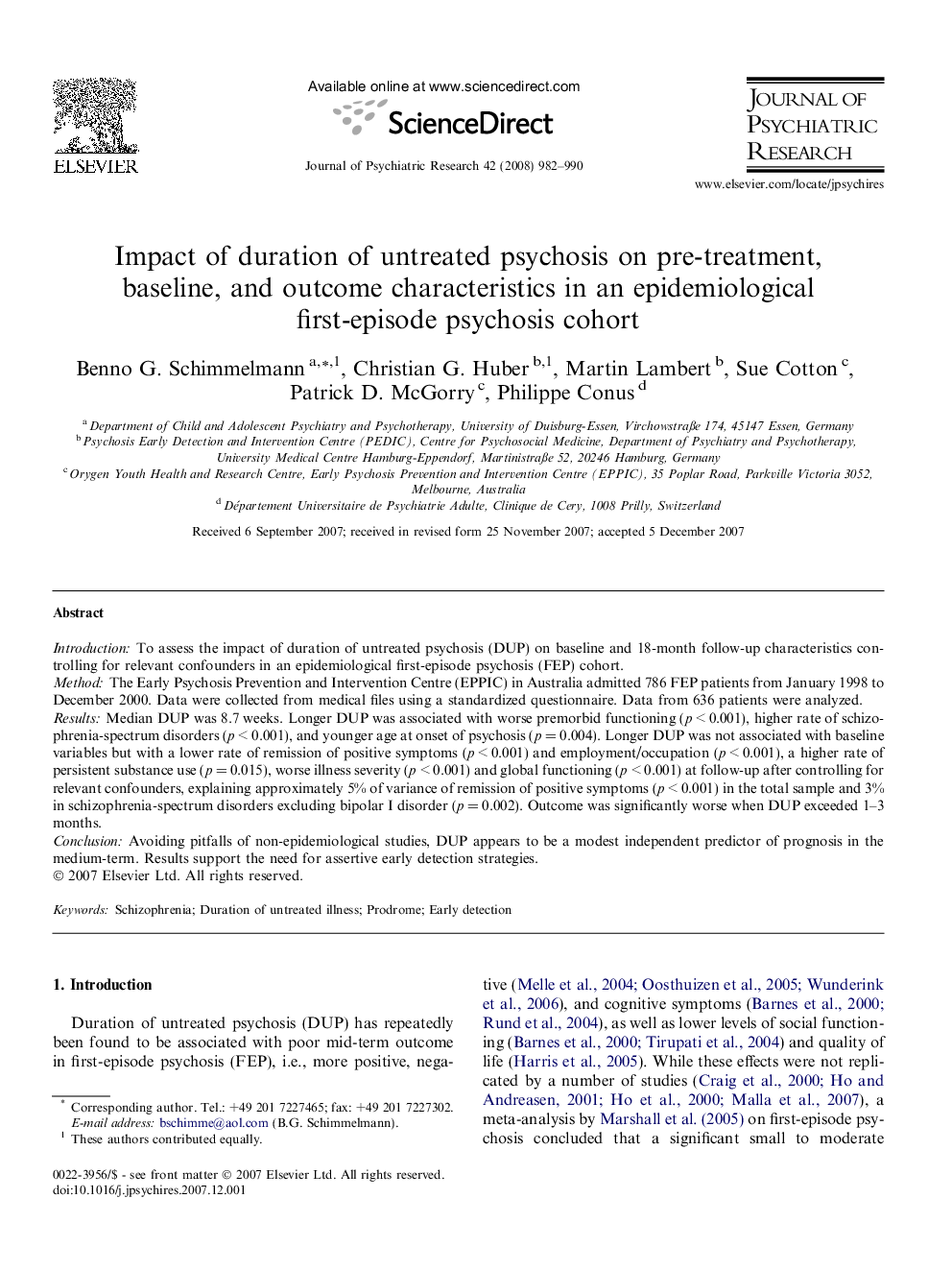| Article ID | Journal | Published Year | Pages | File Type |
|---|---|---|---|---|
| 328029 | Journal of Psychiatric Research | 2008 | 9 Pages |
IntroductionTo assess the impact of duration of untreated psychosis (DUP) on baseline and 18-month follow-up characteristics controlling for relevant confounders in an epidemiological first-episode psychosis (FEP) cohort.MethodThe Early Psychosis Prevention and Intervention Centre (EPPIC) in Australia admitted 786 FEP patients from January 1998 to December 2000. Data were collected from medical files using a standardized questionnaire. Data from 636 patients were analyzed.ResultsMedian DUP was 8.7 weeks. Longer DUP was associated with worse premorbid functioning (p < 0.001), higher rate of schizophrenia-spectrum disorders (p < 0.001), and younger age at onset of psychosis (p = 0.004). Longer DUP was not associated with baseline variables but with a lower rate of remission of positive symptoms (p < 0.001) and employment/occupation (p < 0.001), a higher rate of persistent substance use (p = 0.015), worse illness severity (p < 0.001) and global functioning (p < 0.001) at follow-up after controlling for relevant confounders, explaining approximately 5% of variance of remission of positive symptoms (p < 0.001) in the total sample and 3% in schizophrenia-spectrum disorders excluding bipolar I disorder (p = 0.002). Outcome was significantly worse when DUP exceeded 1–3 months.ConclusionAvoiding pitfalls of non-epidemiological studies, DUP appears to be a modest independent predictor of prognosis in the medium-term. Results support the need for assertive early detection strategies.
